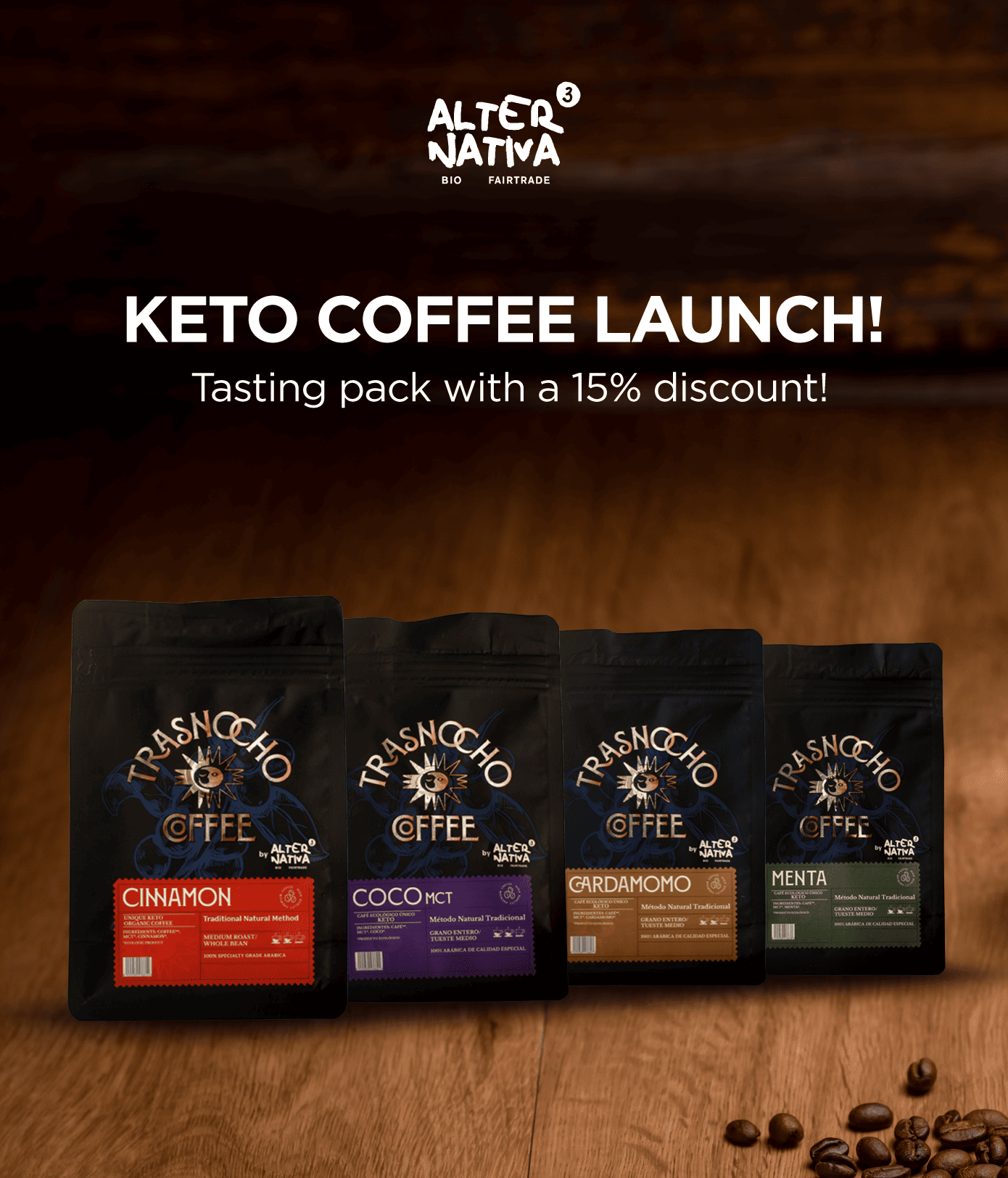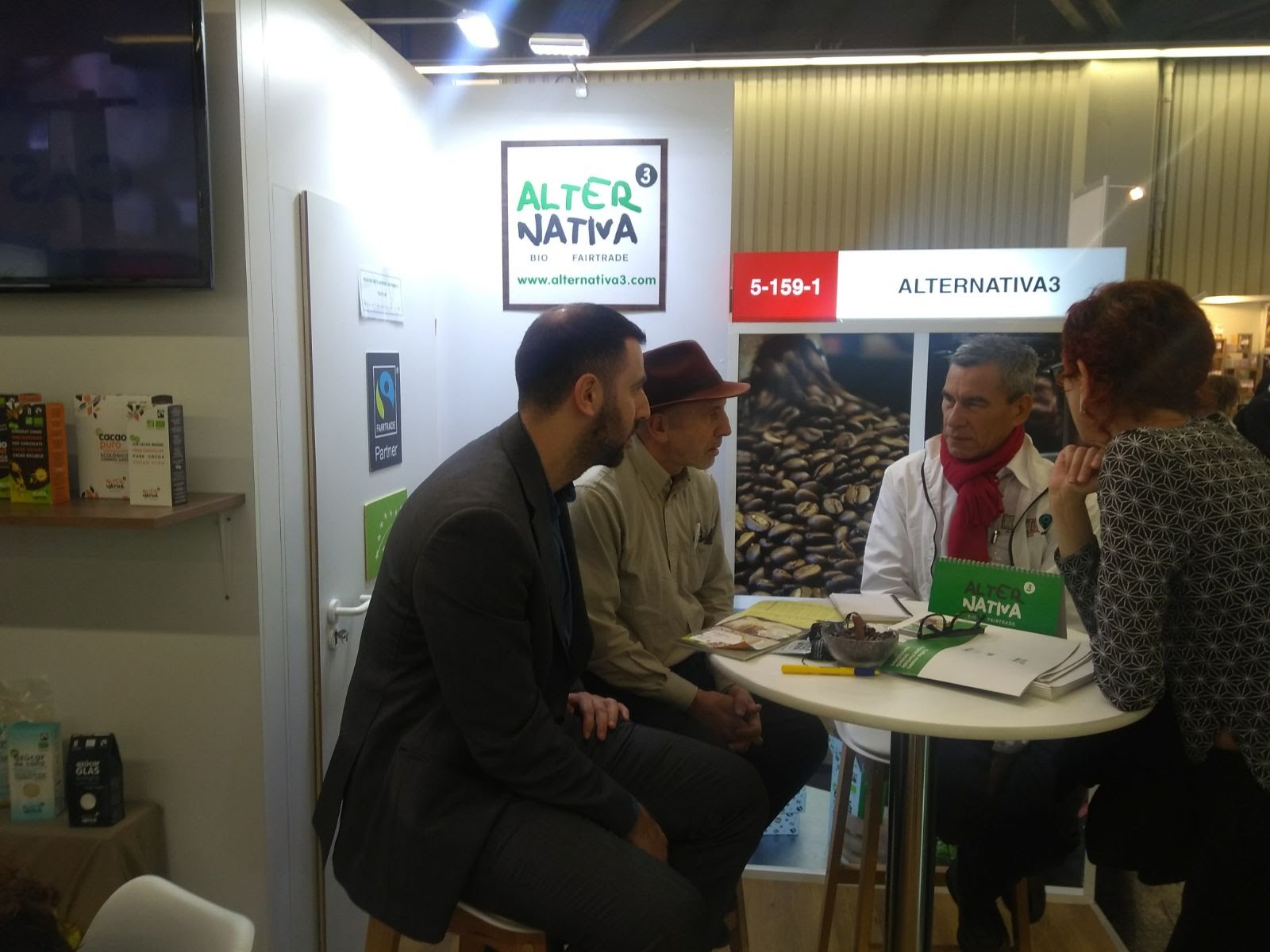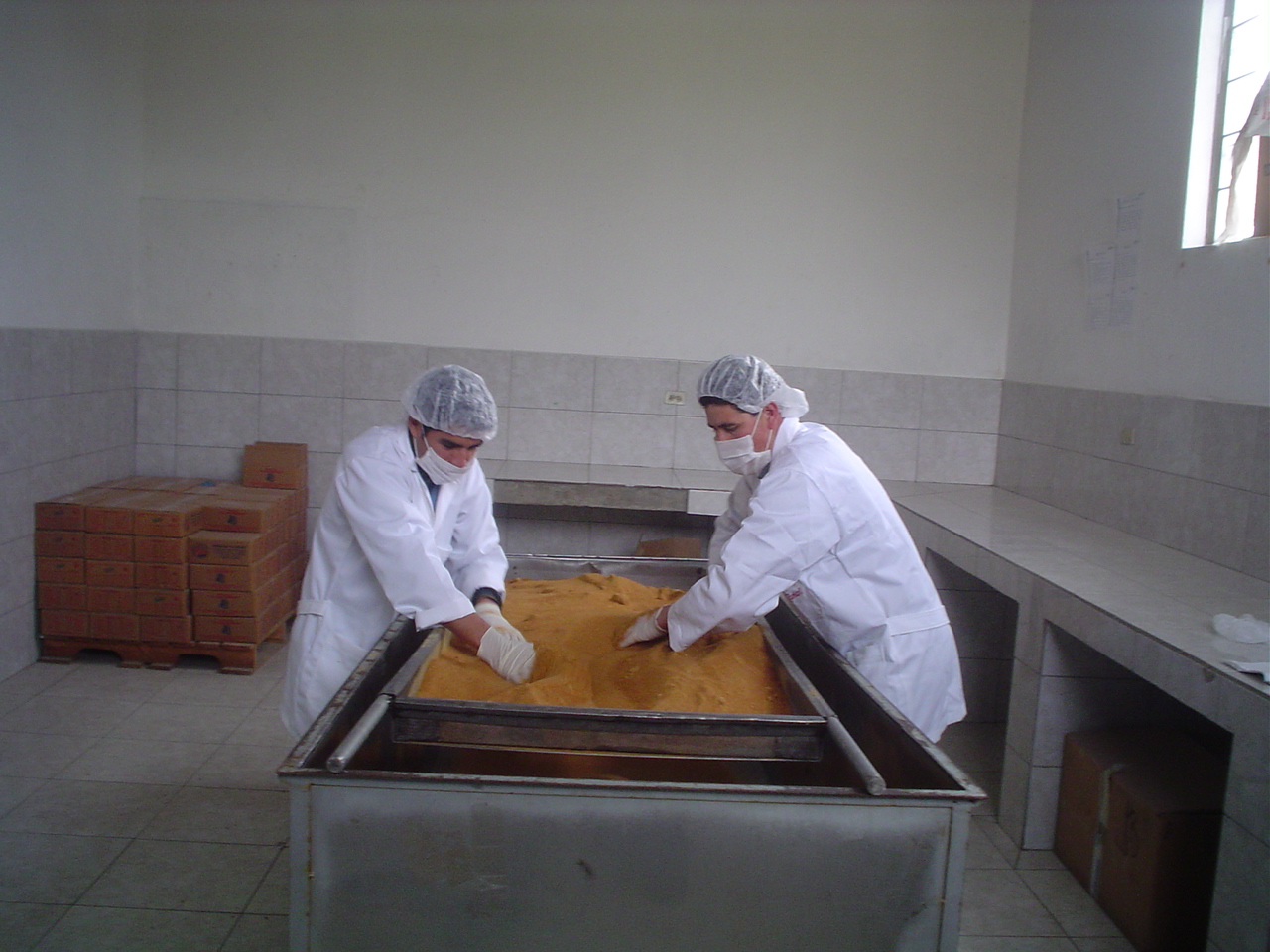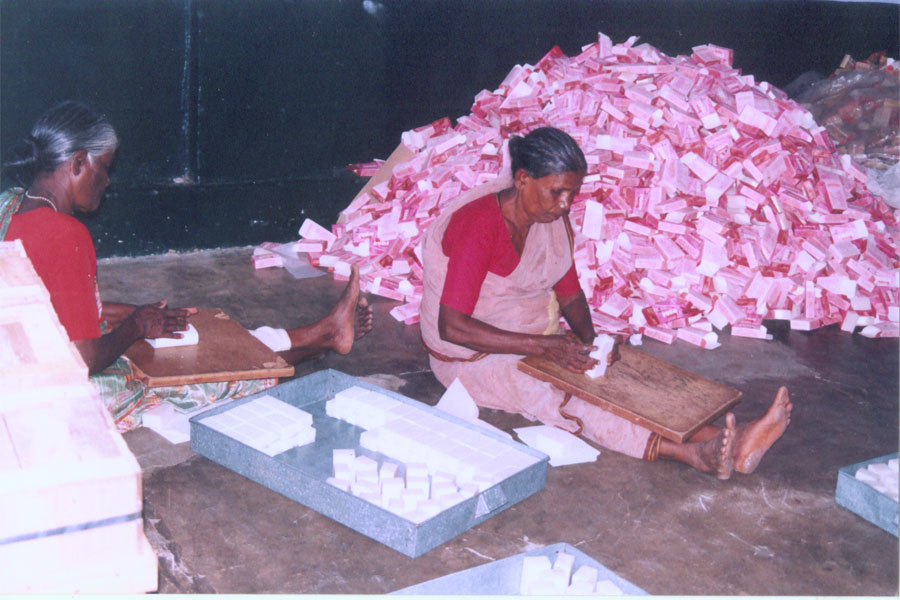At AlterNativa3, in the current health crisis situation, we are closely monitoring the impact of this pandemic on the Fair Trade organisations we collaborate with in countries in the global south.
CLAC (Coordinadora Latinoamericana y del Caribe de Pequeños/as Productores/as y Trabajadores/as de Comercio Justo) is the co-owner of the Fairtrade International system and the network representing all Faitrade certified organisations in Latin America and the Caribbean, as well as other Fairtrade organisations.
CLAC's mission is to represent and promote the interests, empowerment and development of its members and their communities. It currently has more than 900 member organisations in 24 countries in the continent.
Gilbert Ramírez, coordinator of CLAC, sends us the following report on the situation of the organisations represented in Latin America and the Caribbean:
22 April 2020
In recent days, the COVID-19 pandemic has spread widely in South America and the United States, which has already become the new epicentre as the country with the highest number of reported cases worldwide. The pandemic continues to affect Latin America and the Caribbean, where more than 65,000 cases were reported as of 14 April.
Brazil is the country with the most reported cases, followed by Peru, Chile and Ecuador. In addition, a significant number of cases have been reported in Mexico, Panama and the Dominican Republic.
Governments in almost all countries have taken strict measures to prevent the spread of the disease, suspending all activities with mass gatherings, imposing quarantines, limiting the movement of citizens and allowing only essential work activities, closing borders, imposing curfews, among other measures.
To date, 30 days of special measures have been reached in most Latin American and Caribbean countries and most governments have decided to extend quarantine and curfews for another 15-30 days.
Monday's sharp fall in WTI oil prices will also have an impact on the economies of the region where some countries are oil producers.
Governments in most countries (except Nicaragua) will maintain strict disease prevention measures, such as quarantines and curfews, including the closure of industries and economic activities, until the end of April. However, some authorities are considering restarting some activities in May to lessen the economic impact.
Brazil has a political crisis that accentuates the effect of the pandemic, as the president is more concerned about the economy and has not decreed preventive measures, while local authorities (state governors and municipalities) have called on the population to stay at home and keep a social distance. Brazil has reached 40,000 cases.
The Mexican government has declared that the country has entered phase 3 of the pandemic: epidemiological status, in which cases will increase in the coming weeks.
Nicaragua, Belize, Haiti, Paraguay, El Salvador and Jamaica are the countries with the fewest cases of COVID-19 in the LAC region.
ECONOMIC PROJECTION OF ORGANISATIONS
The World Bank and the Economic Commission for Latin America and the Caribbean (ECLAC) have published reports predicting that the region's economy will be hard hit by the crisis generated by the COVID-19 pandemic, as prevention measures have resulted in the stoppage of major economic activities for most countries.
The World Bank predicts that Latin America and the Caribbean will experience a recession with regional GDP falling by 4.6% in 2020. There will be a drop in revenues generated by industries such as tourism, services, trade and transport, as well as remittances, which are very relevant for the economies of the countries in the region.
ECLAC projects a reduction in exports due to the decline in the economic activities of the main trading partners for Latin America and the Caribbean (United States, Europe and China). There will also be a fall in commodity prices, supply chain disruptions and worsening global financial conditions, all of which will have a major impact on the economies of Latin America and the Caribbean.
There will be job losses that will have a negative impact on the economies of the region. The temporary closure and suspension of activities will affect the income of small and medium-sized enterprises, which may be forced to close or lay off employees. Small enterprises generate about 47% of jobs in the region. In addition, there are high rates of people working in the informal sector who have no social protection.
SITUATION OF MIGRANTS IN THE REGION
The migrant population is particularly vulnerable to the coronavirus pandemic. Many migrants from Latin America and the Caribbean are in the United States and have become one of the most vulnerable groups, as they do not seek medical care for fear of deportation. In addition, hundreds of migrants travelling through Mexico to reach the United States are in very vulnerable conditions.
Haitian migrants working in the Dominican Republic were unable to return to Haiti because the borders have been closed since 18 March. Migrants working in rural areas survive thanks to the solidarity of the people because, as they have no documents, they cannot apply for the aid that the government is providing to the poorest families.
Fairtrade certified organisations in the DR have taken preventive measures for migrant workers, and are also providing them with food donations. At CLAC we are creating information materials in Creole to be distributed in banana and cocoa plantations.
Nicaraguans in Costa Rica also face vulnerable situations and in recent weeks there has been a return of around 20,000 people to Nicaragua.
STATUS OF FAIR TRADE ORGANISATIONS
Most Fair Trade organisations in Latin America have taken preventive measures promoted by the governments of each country and continue to work with fewer staff and shifts in the production and preparation of products for export. Administrative staff are teleworking.
Exports continue in most countries and products, but have slowed down due to procedural requirements and the availability of containers and local transport. Movement of products from one region to another within some countries is a challenge due to mobility restrictions. The sector most affected to date is flower producers, as we have recorded layoffs of producer organisations in Ecuador.
COFFEE
There are restrictions on working in the fields, but many workers continue their activities. Administrative staff are teleworking and there are fewer staff on the farms and processing centres, and coffee picking has been reduced. One of the challenges is that technical assistance cannot now be provided to producers because technicians cannot go to the farms and processing plants.
Demand for coffee remains high, however, in many countries there are challenges with shipments, as there is a lack of containers and priority is given to shipping fresh food. In addition, government offices have reduced their working hours, so export procedures will be slower.
Producer organizations expect to maintain contracts for their staff. One of the measures considered in medium to long term terms is to use the Fairtrade Premium as savings to pay salaries in the coming months.
In South American countries, the harvest is just beginning, and producers will work with local pickers who can be transported to coffee farms. Social distancing requires fewer people to work on farms in shifts, and working hours are reduced to ensure the health of workers and coffee growers. Production costs will increase.
On the other hand, in Central American countries, the harvest of the 2019/2020 cycle has ended and producers are focusing on maintaining coffee farms and preparing them for the next production cycle.
Most SPOs have already sold their coffee, no contract cancellations have been reported and deliveries have been made, as planned between SPOs and buyers. Prices are currently on an upward trend; however, the market is extremely volatile, which means a high risk for SPOs.
COCOAO
Cocoa production in most countries remains normal, with challenges in obtaining the necessary workforce for cocoa harvesting in some countries, due to mobility restrictions for working in the fields. They are also teleworking with fewer staff in plantations and processing centres as a precautionary measure.
In some countries, cocoa production has been low or not as good as in previous years, due to climate change.
With regard to cocoa marketing, the process is proceeding normally. On the other hand, some countries are facing delays in their orders, obstacles to export in closed ports and customs. In a couple of cases, orders have been cancelled, due to delays caused by climate change. It is important to mention that this week there has been an increase in demand for cocoa volumes, and especially for FT and FTO cocoa.
In the countries of the Andean region (Ecuador and Peru) the harvest has just started, as well as in the Dominican Republic. One of the challenges in the Dominican Republic is that there are fewer workers available for the harvest due to mobility restrictions, but despite this, no delays in cocoa harvesting are expected. In Colombia, Costa Rica, Panama and Nicaragua, the harvest has been completed and for many PPOs it has been a good harvest this year. The challenge now lies in harvesting cocoa and farm maintenance for many countries.
Although last week cocoa prices were below the minimum; both demand and price have increased. It is worth mentioning that demand for FT cocoa is stable, therefore prices remain high, and we expect this to continue in the coming weeks. There was a drop in price and demand before COVID-19 in LAC, but the situation has improved in recent days because the industry is perceiving that there will be less product available in the coming months and is stockpiling as long as possible. Overall, no negative effects have yet been recorded for this product.
SUGAR
All producing countries have full or partial mobility restrictions, which limits the operations of the PPOs. There is a major impact because producers have been left without processing sugar cane and therefore without liquidity.
Due to the quarantine in some countries, the PPOs have not received technical assistance and production control has not been adequately maintained.
Contracts signed at the beginning of the year have been maintained; there are no new sales. Export processes continue, but slowly.
In the Andean region, the PPOs produce panela all year round. Currently, they have harvested 25% of the estimated amount. However, in April all operations have stopped. The lack of sugar cane processing creates a delay in the agricultural calendar and there is a possibility that producers will not be able to meet deliveries of panela for local and external markets.
In the Central American PPOs, the harvest has reached 80% of production, estimated at 110,000 tonnes of sugar. Sugar SPOs in El Salvador and Costa Rica are finishing the harvest, giving confidence to the market. However, all the SPOs face limited labour to cut cane, which increases production costs. In the Central American SPOs, the harvest has reached 80% of production, estimated at 110,000 tonnes of sugar. However, all the SPOs face limited labour to cut cane, which increases production costs.
In the Caribbean, organisations have completed 45% of the harvest. There is a delay in harvesting in Belize, and the PPOs have completed 40% of the harvest so far. Cuban and Jamaican PPOs have finished harvesting and are assisting farms and supporting communities in different areas, especially with food supplies.
The reference price for white sugar (LDN) and raw commodity sugar (NY) collapsed. In Paraguay, there is only organic production, so the reference prices did not affect them; although there is a doubt among producers because there is no minimum price for sugar. Panela PPOs have a favourable market expectation.
PPOs have a short-term priority of harvesting sugar cane, but have suspended key programmes and services for their members and their communities. Their service has gone from personalised to electronic, which opens the door to unemployment in the future. Budgets are not sufficient and they have to adapt to the new times, and there is also the risk of not getting loans from financial or state entities.
The LAC region estimates (2020) to produce: 355 MT of sugar -35% organic. The sugar cane industry has been classified by governments as an essential industry and PPOs are operating in Central America, the Caribbean and the Andean region, and is expected to have the same treatment in the southern countries where the start of harvesting is being discussed and could start at the end of May or June/July.
The London (white sugar) and New York (raw sugar) stock exchanges both show downward trends, reaching US $ 250 x MT (20/04/20). The stock exchange prices are used by producers and buyers as a benchmark because there is no minimum price for sugar. Organic sugar is detached from this dynamic, which affects trading. Falling oil prices and sugar and beet production are putting pressure on prices.
USE OF THE FAIRTRADE PREMIUM
In recent weeks, many Fairtrade certified organizations have used part of the FT Premium to buy food supplies for their members and help vulnerable populations in their communities.
Some have used funds to provide financial assistance to groups of elderly or vulnerable people who have been unable to work because of the pandemic.
Fair trade organisations are also making donations to strengthen health systems. In Colombia, banana corporations joined forces to set up a COVID-19 diagnostic centre in the Urabá region and also delivered medical supplies to health institutions.
Solidaridad continues to appear in Fairtrade organisations in Latin America and the Caribbean. At CLAC we are advising on how to use the Premium to address the crisis also in the medium and long term, as there is expected to be a significant economic impact for the region.
Some Fairtrade certified organizations are requesting the use of FT Premium to pay salaries due to lack of liquidity, and some have asked about the possibility of using it to pay for certification.
Solidarity efforts continue in different countries, where Fairtrade organizations are making efforts to help their community using the Fairtrade Premium or their own resources.
>C LAC is recommending organizations to use the Fairtrade Premium wisely in order to have resources to face the expected economic crisis that the pandemic will generate in the region's economy.




